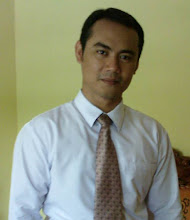Cancer is a very dangerous disease, which can affect human, animals and plans. According to the American Cancer Society, 7.6 million people died from cancer in the world during 2007. Many researchers said that the risk cancer can be minimize. On the other hand, there are some opinions that it cannot be minimized.
Research carried out by Harvard University showed one third of the seven million cancer deaths in the world could have been avoided if the victims had eaten sufficient fruit and vegetables, refrain from smoking, consumed less salt, sugar and oil, done more exercises, cut down on red meat consumption and watch their weight. Overindulgence in unhealthy habits is the key factor for cancers.
How ever some doctors say that cancer is a multi-factor disease. It’s a combination of environmental factors and family history there is no clear definition to pinpoint the exact risk factors. There is no guarantee that a person who rigidly follows good health procedure will not suffer from cancer or vice versa.
This is a very subjective issue. Therefore people who totally ignore the healthy lifestyle are advised to give up or at least reduce their unhealthy habits before it’s too late. Following a healthy lifestyle by occasionally eating less red meat deep fried food or ice cream could not hurt them. To prevent is better then to cure, so go for clinical check up regularly. Consult a doctor immediately. If cancer is detected earlier, there will be a better chance of cure.
KILLER INSECTS
There are many diseases spread by insects to humans. The most common diseases are malaria, dengue fever, encephalitis, filariasis, lyme disease, leishmaniasis, chagas disease, plague and typhus. Among the insects responsible for these diseases are mosquitoes, bugs, fleas, flies and ticks. Many of the diseases infected by insects are not actually caused by the insects themselves, but rather by organisms passed on when the insects bite and feed. In this case, the responsible diseases-causing organism is called a pathogen, and the insect responsible is known as a vector.
There was a young girl and her mother in small village. The girl was beautiful but very lazy .she never helped her mother to earn a living. Everyday, she dressed up and admired her own beauty in the mirror. Beside being lazy, she was also spoiled .whatever she wanted she must get. This made her mother very sad. One day, the mother asked the girl to accompany her to the market. “OK but I don’t want to walk beside you; you have to walk behind her.” the girl said. With a sad heart, her mother agreed. So the girl walk in front a mother followed behind her, carrying a basket.
The mother and daughter looked very different; the daughter looked very beautiful dress, while the mother looked very old in her pretty dress.
On the way to the market, people greeted the beautiful girl and asked who the old woman behind her was. The girl said that old woman is her servant. The mother was very sad but she kept silent.
At last, the mother couldn’t bear the pain anymore. She prayed to the god to punish her daughter, and god her answered the prayer. Slowly the girl's leg's turned into stone and third process continued to upper part of the girl's body. The girl began to be panicked
“Mother, please forgive me “She cried and cried. until it was too late dayung finally her whole body turned into stone .
Until now people can still see the tears falling down the stone. That's why that stone is called “crying stone”
A study showed that spending too much time on watching during the day or bad time often causebad time disruption, stress, and short of sleep duration.
Another research found that there is a significant relation ship between the amount of time spent for watching TV durng adolesence and early adulthood, and possibility of being agresive.
Mean while, many studies have identified a relationship between kids who watch TV a lot and being inacative and overwight.
Considering the fact mention above, protect your children with the following tips:
1. Limit television viewnig to 1 – 2 hours each day.
2. Do not allow your children to have a TV set in their bedrooms
3. Review the rating of TV shows thaat your children watch
4. Watch television with your children and discuss what is happening in the show.

